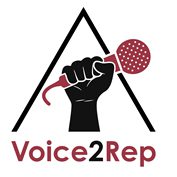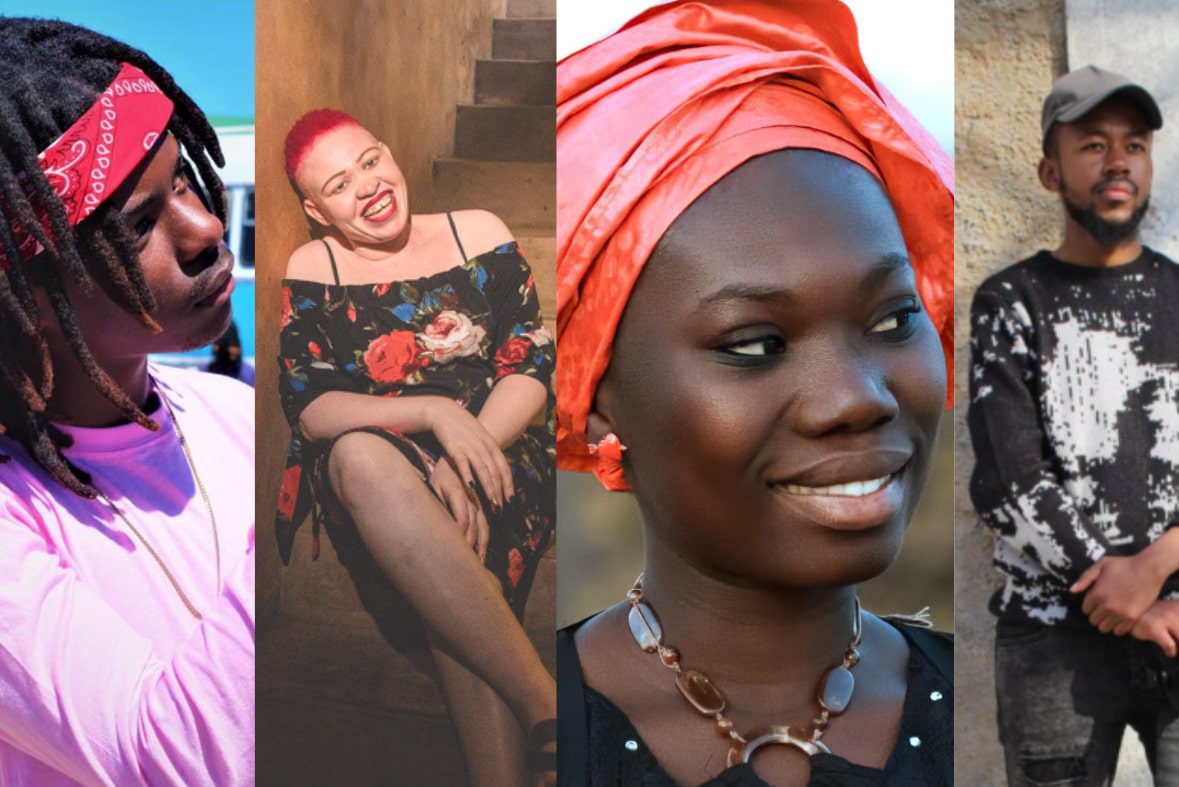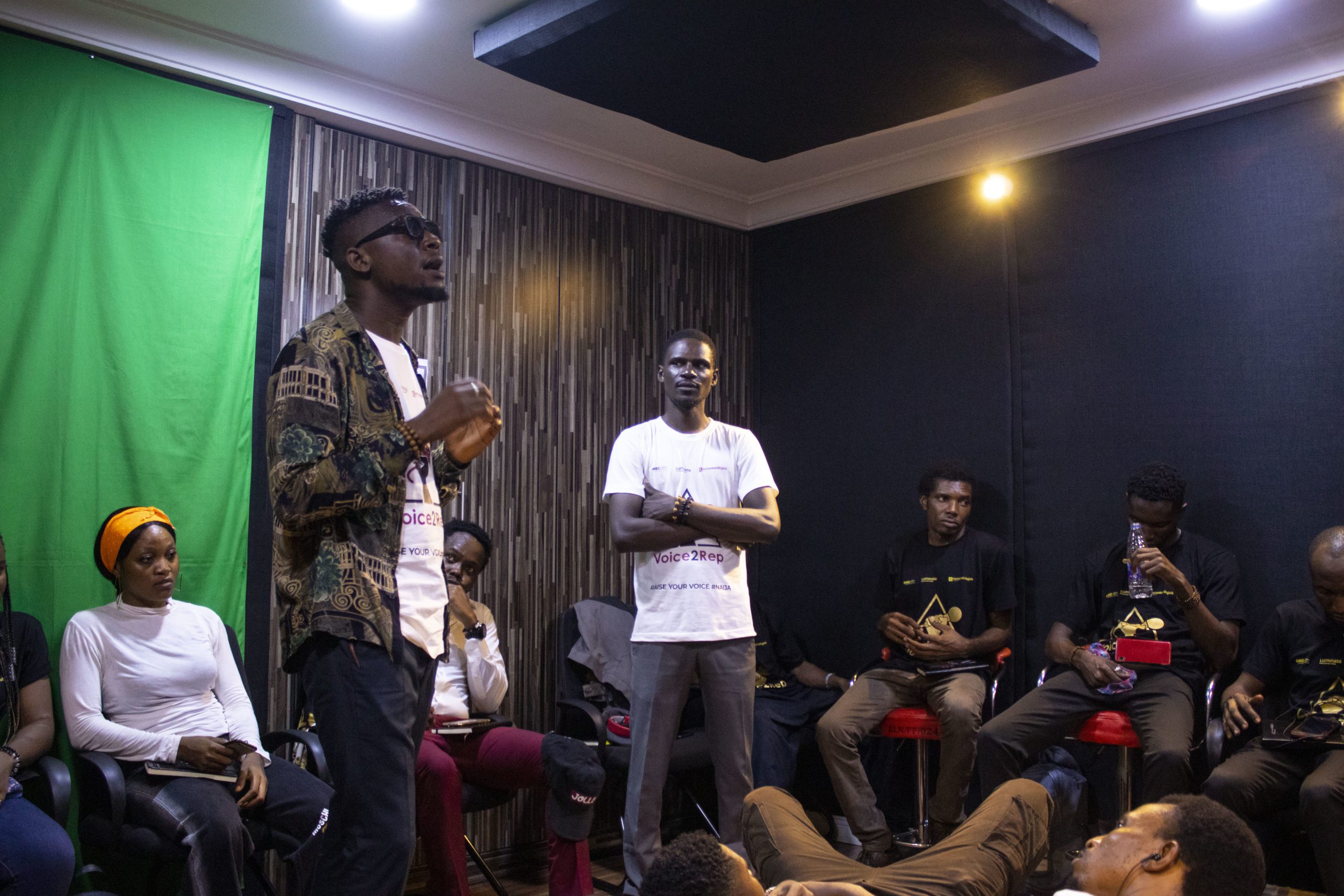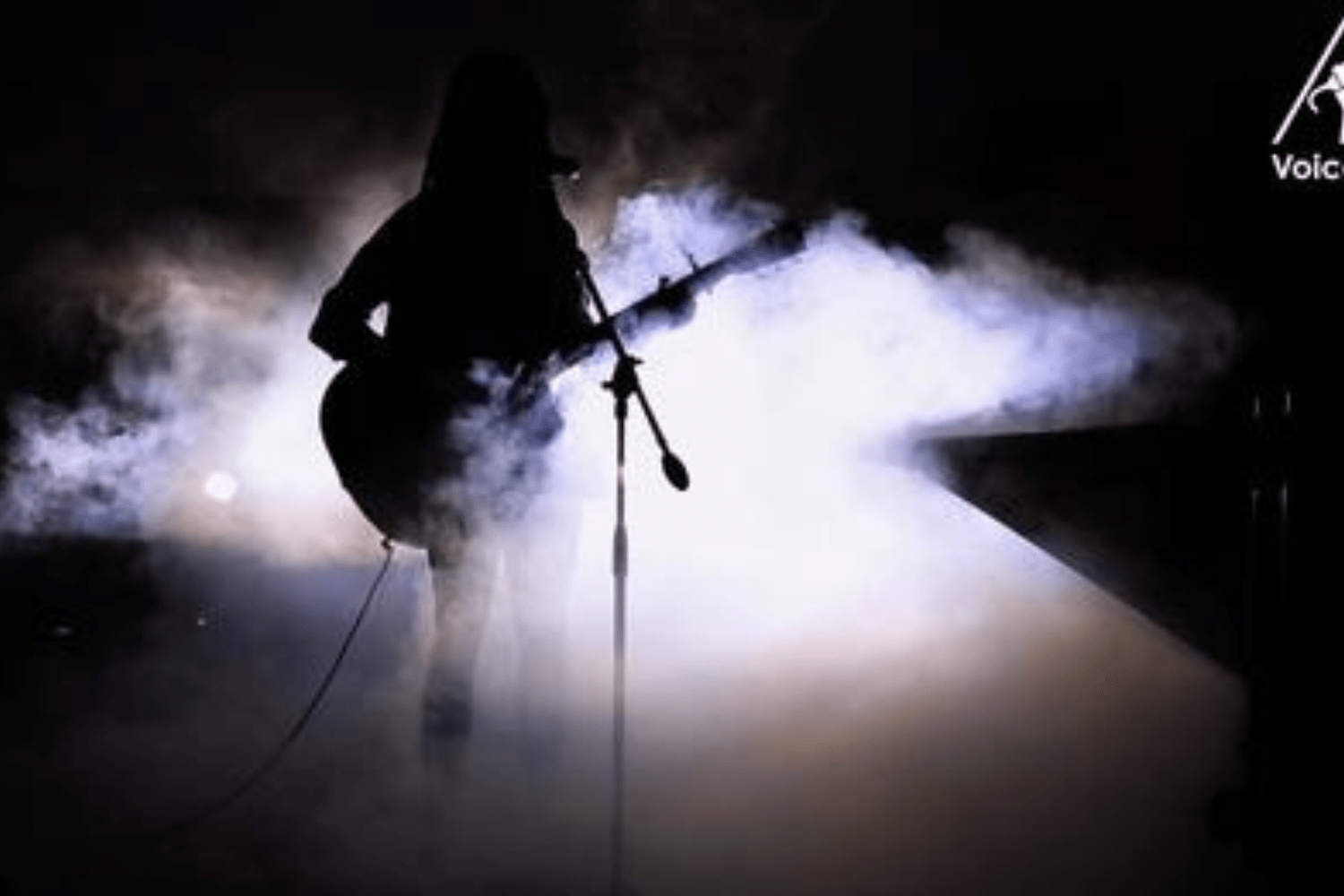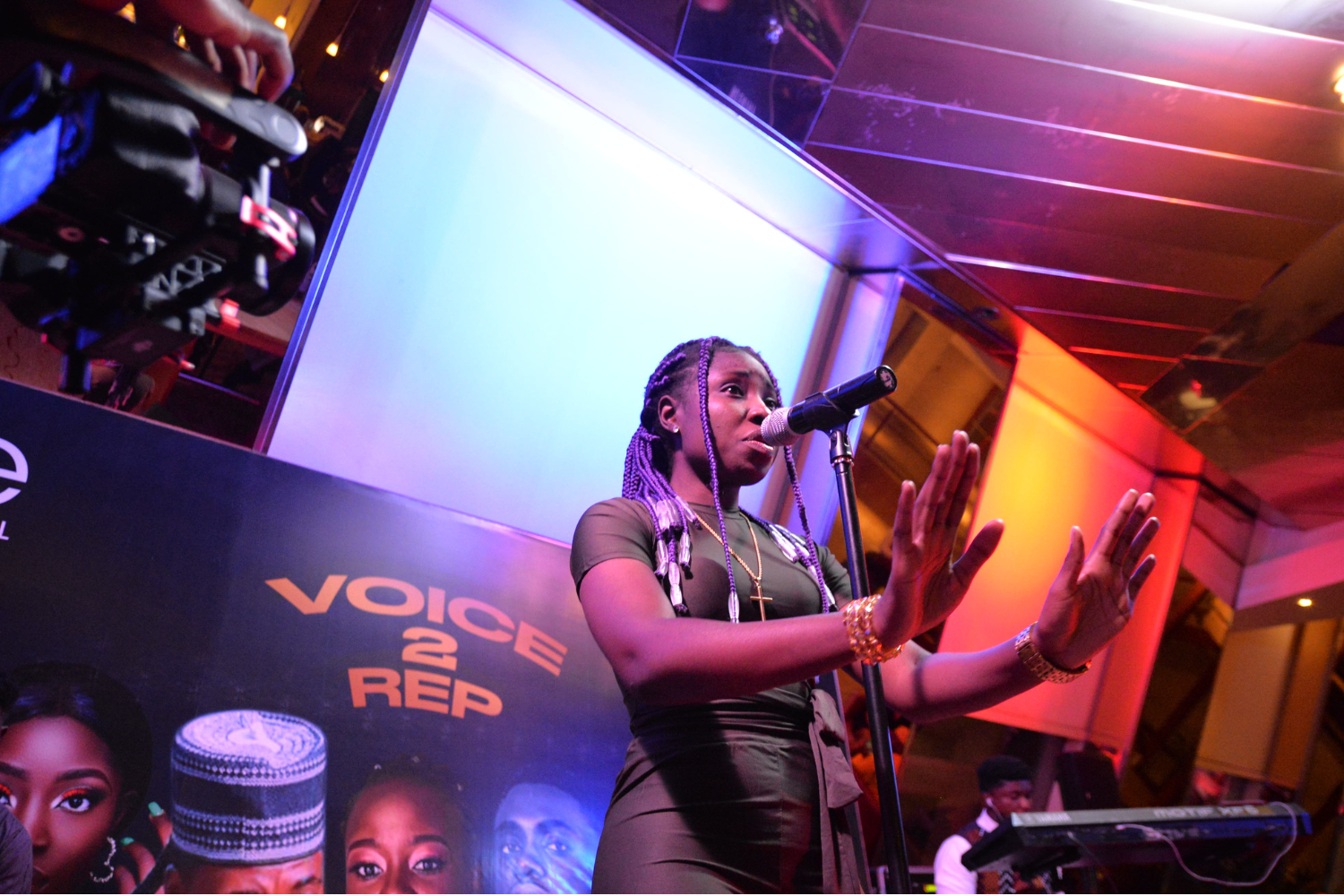

Music as a Catalyst – Amplifying Underrepresented Voices
By Kibo Ngowi
Art is a powerful tool for connecting people and shining a light on important social issues, and promoting equity and representation. This is an idea that runs right through the Lab’s Arts for Change programming. With music in particular, the Lab has created a network of musicians making socially conscious music across the African continent, creating sustainable models for change that integrate values and impact into the fabric of their work.
Two people who played an instrumental role in this process are the musician MI Abaga and the activist Nora Rahimian. These two talented changemakers have recognized and challenged the gender divide within the music industry, taking intentional steps to promote inclusivity, listen to diverse perspectives, and provide support for women and other marginalized communities. We spoke to them about the essential role music can play in breaking down barriers of class, religion, ethnicity and gender and amplifying underrepresented voices.
Building a music accountability network
Nora Rahimian is the CEO of culture fix, a global collaborative network of creatives, activists and entrepreneurs who use their platforms for social impact. She is also the President of Incredible Music.
Nora has a strong background in community organizing having spent years doing prison abolition and gang intervention work. When she moved to Liberia to do more community work she quickly realized that there were many nonprofits that were not making the kind of impact they wanted to make.
There was a big gap between what they were trying to do and the audiences they were serving. At the same time, she noticed how there were a host of hipco artists who were well regarded and highly influential to the young people and underserved communities these nonprofits were trying to reach.
“I really see music as a pathway to social change,” Nora explains. “If we can leverage the relationship that artists have with their fans to get them to buy music, we can also get them to talk about social justice issues and change their behavior. So to me, that’s the most powerful part. Music is great, we can dance, we can vibe, it’s beautiful. But that ability to make behavior and emotional change is really powerful.”
Nora connected with AL co-CEO Blair Glencorse and together with a group of hipco artists who wanted to do social impact work developed the idea of creating a hipco accountability network. This led to the creation of Voice to Represent (Voice2Rep), a first-of-its-kind music competition searching for undiscovered music artists who support greater representation, participation and accountability
Rather than doing a once-off campaign they developed a model for training artists and teaching them about accountability, equipping them with media literacy skills and giving them the space to tell stories about social issues in their own words. The model has since been replicated across the Lab’s translocal network in Nigeria and Zimbabwe and most recently in Mali and the DRC where the program was officially launched this year.
“I think programs like Voice2Rep do great work by building social impact and social justice values into the everyday fabric of everything, from the creative process to the business around it and to the ways we build relationships,” says Nora.
“This sets it up so that artists don’t ever have to make the compromise or the negotiation between their values, their impact and their art. Those things become one and the same, and then they’re given support around it. So it’s a sustainable model for creating change that’s grounded in a real authentic belief in what people want to see.”
The connection between values and actions
MI Abaga is one of Nigeria’s most prominent rappers, singer songwriters and producers and has won many awards including Best New Act at the 2009 MTV Africa Music Awards. He has been in the music industry for over 15 years.
“I have always been inspired by Fela Kuti,” he says. “I think he’s the most socially conscious artist we have ever seen, being someone that challenged the government time and time again and spoke truth to power no matter the consequences. Add to that my father is a pastor so I have always seen the connection between your values and beliefs on one hand and your actions and words on the other.”
Driven by this belief, MI had made himself available for social cause work throughout his career, volunteering as a UN ambassador and speaking out about social issues such as gender-based violence, but the real turning point in his career was around election work.
“I had a moment of awareness about my own apathy,” he explains. “I had never even considered voting but one day I decided to get my voter’s card. It was such a tough process and leading up to that point I had done concerts, telling people to come out and vote. So that was a big realization for me about how it’s easier to speak than it is to do.”
“But this experience helped me realize that my role would be to mobilize other musicians like myself, and bring them into the space. So when the next round of elections came up, we got a partner, raised some funding, and staged six concerts across the country all themed around participating in elections.”
This series of concerts took him to the different geopolitical zones of the country and when he went to the southwest he had a conversation that stays with him to this day. After the concert he spoke to a teenage boy who said to MI: “You’re here now talking to me about the elections. And I know I’m not going to see you again until the next election cycle. To me, you’re just like a politician.”
MI says that was the moment he decided to commit himself fully to making social impact work and being a good citizen part of his day-to-day life as well as all the initiatives he pursues as a musician and a creative. This led to him becoming involved in Voice2Rep Nigeria as a mentor for upcoming artists and establishing the organisations TASCK Creative Agency and Incredible Music with like-minded artists and activists.
Challenging the gender divide
MI Abaga highlights that there are many social issues in Nigeria that prevent otherwise deserving musicians from accessing opportunities including divisions of class, religion and ethnicity but he says the most persistent problem is the gender divide.
“Too few women, especially in music, are getting through,” he says. “And from what I’ve seen, part of the challenge is that early on, young girls are not as safe in studios and other creative spaces.” MI has tried to challenge this trend in how he conducts himself and how he has approached building his own organization TASCK Creative Agency.
MI believes there are two simple steps we all need to take to challenge this divide. First of all, if there are women involved in decision-making, early on, it will shape how things go. So his first hire, when he established TASCK, was a woman and that’s someone that still works in the organization today.
“The second thing is creating the space to listen. Because I think that that’s really where for a lot of men the bias lies. Most of us have been in rooms where we’re allowed to speak more. So actually in a meeting saying to yourself that it’s okay to be quiet for the next 15 minutes so that people that may not be comfortable are going to feel they have the space to speak up and share their own perspectives is essential.”
MI says those two changes cascaded down and snowballed into everything else and today TASCK feels like such a woman-led organization, even though he is the founder and CEO, because right from the onset almost all the key decision makers were women. He’s careful to add that he doesn’t solely deserve the credit for this but emphasizes that he’s happy to have taken part in creating an environment in which women were involved right from the foundation and were given the space and support to voice their opinions.
Nora Rahimian explains that this gender divide is a core issue, not just in Nigeria, but in every city across the world because music is so reflective of society and society is patriarchal. “I think it’s really important to be mindful of the fact that you can’t just hire women and have systems within the organization that are still based in misogyny and patriarchy, because then you set the women up to fail, or you hire them, and then you critique them for the things that you’ve hired them for,” she says.
“And so part of it, I think, is making sure that you’re interrogating, and I use that word, cautiously, your own ways of thinking, your own expectations of your team. For instance we have an A&R who’s a cisgender male and I want to be very intentional about making sure that we’re hiring producers that are women and writers that are women. But if I do that, and my A&R hasn’t unpacked his own expectations of how women should behave and the value that they bring in, it’s going to be a recipe for disaster.”
Nora adds that part of their work on the label side is to make sure that the A&R receives training around equity, inclusion and feminism so that when he’s alone in a studio with a woman artist he’s conscious of how his own behavior may feed into the problem.
“I also believe if we’re gonna bring women who are queer folks, or trans folks or non-binary folks, or femmes into the music space and tell them we want to hear their stories we can’t then turn around and tell them their stories are not marketable. It’s our job to market those stories, or find an audience for however they want to express themselves. We have to allow space for that if we’re serious about making a difference in people’s lives.”
Nora says all of these ideas have fed into the creation of Incredible Music, the project MI and her are working together on now. It’s really built to be a space where artists can be who they are without having to compromise their personal integrity, or their creative vision, where the social impact work they care about is built into it.
“But really, we’re artists first, which means we’re just as serious about making impactful music as we are about treating our artists well. So we’ve got so many talented artists who really care about their communities and we just want to make it easy for them to make the music they want to make, but also so that folks can hear it.”

